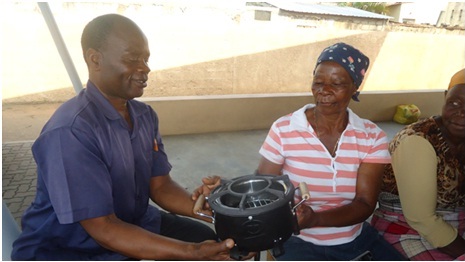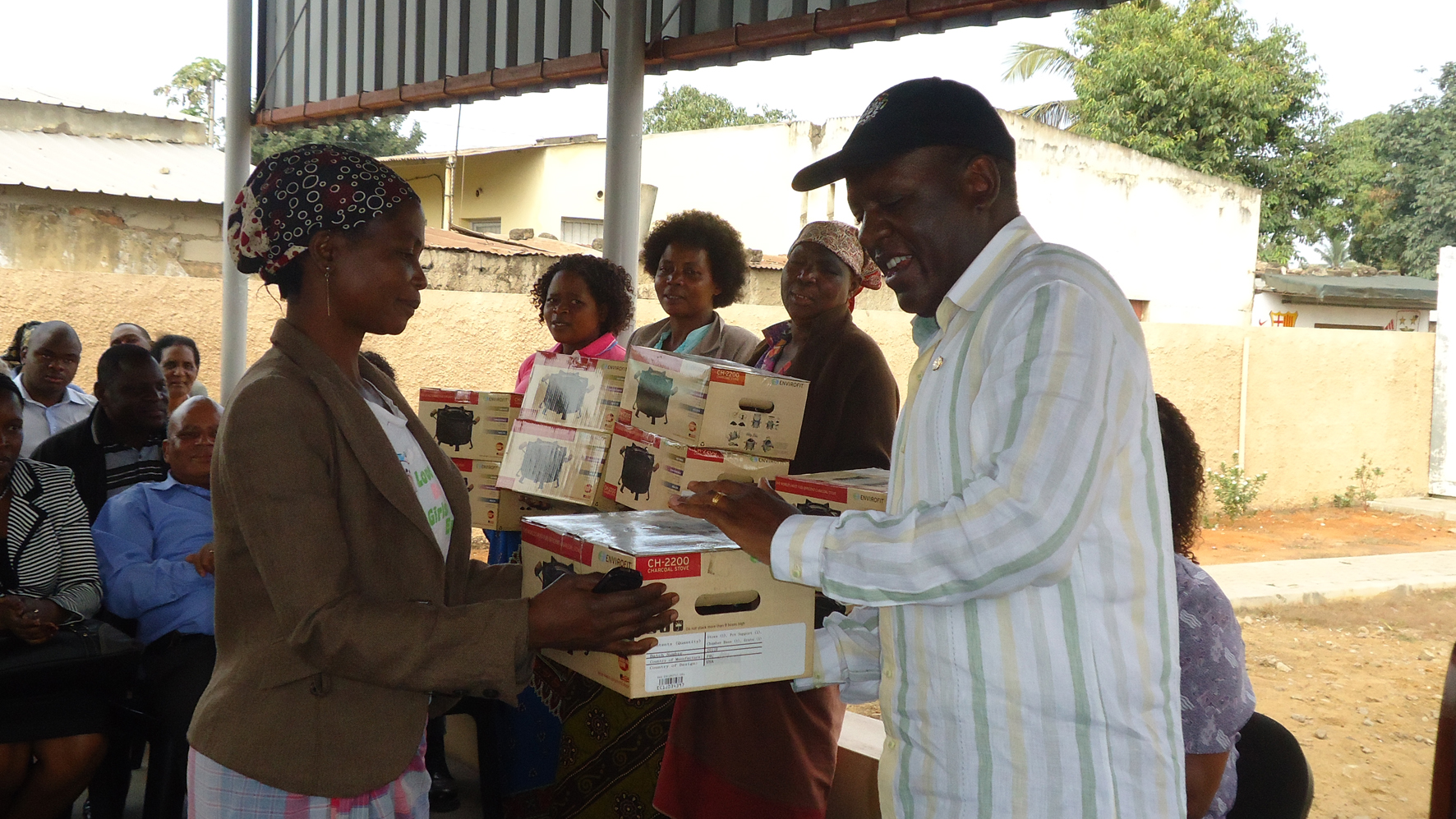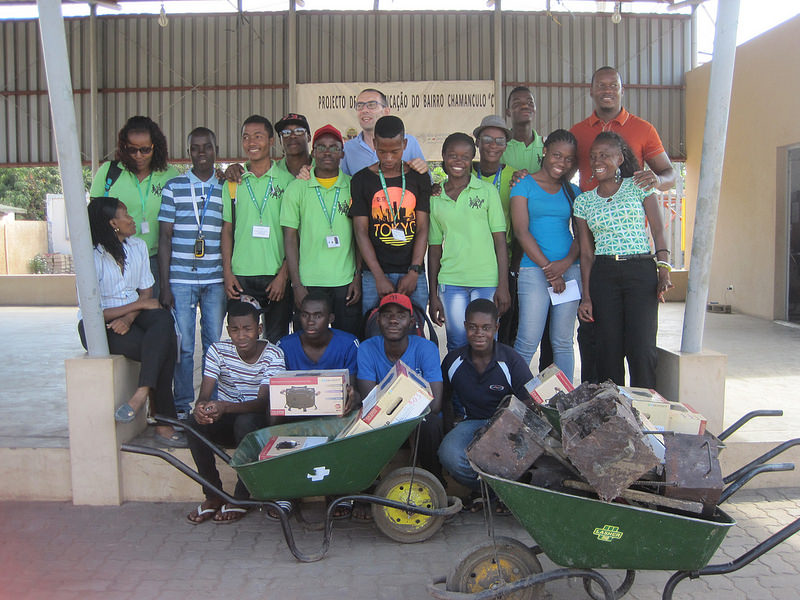DATABASE
Improved Energy Efficiency in Chamanculo and Xipamanine slum areas, Municipality of Maputo, Mozambique
ongoing
Country
Mozambique
Budget
500.000 - 3M $
Year
2014
Issue
Solutions
Link
www.avsi.org
Abstract
Main aim of the project is the promotion and distribution of Improved Cooking Stoves (ICS) for the betterment of nutrition, energy efficiency and environmental conditions of the most vulnerable households living in Chamanculo C and Xipamanine informal settlements of Maputo (Mozambique).
Project Description
Main focus of the initiative is the promotion and distribution of Improved Cooking Stoves (ICS) for the betterment of the nutritional, environmental and economic condition of the most vulnerable households living in Chamanculo C and Xipamanine informal settlements of Maputo (Mozambique). The Improved Stoves, certificated by the United Nations Framework Convention on Climate Change (UNFCCC), are introduced through a local sustainable market promoted in the two informal settlements. Project’ s main strengths are: healthier and more efficient cooking procedures, dramatic reduction of toxic emissions due to a lower consumption of charcoal -therefore reduced biomass consumption, and reduced greenhouse gases (GHG) emissions, and economic savings as well. The project can be actualized by means of a multi-stakeholder partnership gathering different sectors: Cloros and CarbonSinkGroup (private), GIZ (Development Agency/Governmental Company), AVSI and Khandlelo (NGOs), Maputo City Council (local authority).
BENEFICIARIES
Expected beneficiaries: About 7500 poor households (35.000 individuals) living in Maputo’s informal settlements without basic infrastructures; among them women have been considered privileged beneficiaries obtaining healthier food treatment, safer domestic conditions and increase in saved time for cooking.
Results
Expected results by the end of the project: Betterment of the nutritional, environmental and economic conditions of 7500 local households (35000 individuals) by the mean of spreading the use of 15000 improved cooking stoves. Results up to December 2014: 5000 improved cooking stoves has been sold and delivered to about 2500 local households contributing to the betterment of local socio-economic conditions through: -deforestation cutback due to a more efficient use of charcoal (50% reduction in charcoal consumption per stove; charcoal saved so far: 140.000 Kg); -CO2eq emissions reduction up to 60% per family; -increased local households’ incomes (from 6% up to 10% of monthly earnings) through savings on charcoal and the creation of a community fund (generated by improved stoves selling) managed by a local people association (actual fund value 45.000 USD); -provision of a stable income to local unemployed youth through their involvement in promotional activities related to stove selling.
Business Model
Local economic and social sustainability has been achieved through three phases: First phase: improved cooking stoves, certified by Clean Development Mechanism criteria, are imported because in Mozambique they don’ t exist. Second phase: components are imported, whereas assembled locally. Third phase: (ongoing): local production of certified improved cooking stoves according to the Clean Development Mechanism criteria.
Lessons Learnt
According to the experience developed in this project two issues has to be faced: 1.Local civil society engagement in public meetings and demonstrative tests to explain the initiative are required so that the diffusion of the new technology happens in a proper manner. 2.Mix of different financial instruments and incentives: -International certification of emission offsets guarantees the economic sustainability as well as the environmental efficiency certified by official international organizations; -local socio-economic context must be taken into account in defining proper payment method: monthly installments and economic bonus associated to old stoves replacement have been used in this project.
Key Feature
The adopted organizational model is the most innovative aspect in the implementation of the initiative according to the following main points: a.multi-stakeholder partnership among profit, development and research agencies, civil society, specialized companies, and public sector, made possible the full engagement of different actors toward a common goal; b.matching between supply and demand: by talking with the local population in the informal settlements has been possible to know its real needs and so identify fitting solutions also respondent to sustainable market criteria; c.deem the local community the main actor of development by its active involved in all phases of the project; d.wide spread of a smart technology through improved cooking stoves e.mitigation of climate change effects by progressive reduction of GHGs emissions and subsequently issuing of certified carbon credits according to international standards (Clean Development Mechanism & Gold Standard).
Other significant information
The project activity has multiple positive impacts on the environment including: Air quality The use of ICSs will reduce the amount of charcoal needed for the cooking activities compared with the baseline situation. Reduced fuel usage will have a positive impact on the air quality as less indoor air pollution currently associated with traditional stoves will be emitted. Biodiversity and Soil condition The decrease in charcoal used will discourage the deforestation and thereafter biodiversity loss and improve soil conditions as well. Greenhouse gas (GHG) emissions Improved stoves reduce charcoal consumption for cooking and therefore GHGs emissions. Since the beginning of the project (April 2014) 150.000 kg of charcoal has been saved- equivalent to 900.000 kg of wood necessary to produce charcoal, and to 1.200 tCO2eq (tonnes of CO2-equivalent) emissions. Whole savings estimated at the end of the project are 82.000t of charcoal, equivalent to 500.000t of wood and about 270.000 tCO2eq.
Main Donor
Cloros s.r.l
(Private sector)
Implementing Actor
AVSI (NGOs)



